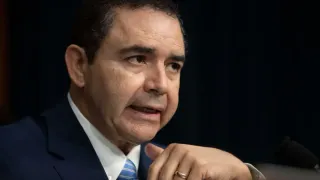October 6, 2017
Billy Boy
Dale Reynolds READ TIME: 2 MIN.
Nick Salamone's beautifully-written, if exasperating to watch, play, "Billy Boy," has been stunningly directed by veteran Jon Lawrence Rivera, in a simple, profound, but overly talky production.
Salamone has proven himself, over the years, to be a writer who is finely-attuned to current scenes. This one is, as well. It opens with a bed and its bedcovers hiding two people having mad, noisy sex. Michael (played by the writer), somewhere in his late forties or early fifties, and Emma (Rachel Sorsa), younger, were lovers for a short time.
And as the playwright slowly uncovers their pasts, we also meet Michael and David (Matt Pascua), who are just finishing sex. But David is at least 25 years younger than Michael, and Emily is at least 20 years younger than Michael, revealed to have been college sweethearts. And, odder still, David and Michael have been separated by AIDS.
But then we meet Michael's mother (Sorsa), in a previously-described bright yellow dress, who has much to say to her errant son. So what's going on in this isolated hotel room? Well, in 90 minutes all is explained, sort of, as Michael is either hallucinating or is lost in sad memories. That's the conundrum behind the frustrations for this critic of Salamone's highly entertaining and sexy drama.
There is real thought behind this action: what is love, how does it manifest, and what are we left with when finished?
It's a sad if amusing drama, helped enormously by Rivera's astute casting (aided by casting director Raul Clayton Staggs). While from time to time it might allow us to drift, Salamone, Pascua, and especially, Sorsa, do keep us attuned. The chemistry is solid and apparent as the bisexual Michael knows a thing or two about great sex, and mother-love. Plus, Salamone understands dramatic tension. Both he and Sorsa are also free with their nudity, and Pascua is fit and handsome.
Christopher Scott Murillo has designed a simple hotel room, and Derek Jones' lighting often points up salient ideas expressed by the talented trio of actors. This is a smart play, but could use some editing as the characters, Michael especially, pontificates about what was... and maybe still is, at least in Michael's mind.
Notwithstanding, it is a beautiful production, intelligent and worthy of our attention.
"Billy Boy" plays through October 15 at the Atwater Village Theatre, 3269 Casitas Ave, Los Angeles, CA 90039. For tickets or information, call 800-838-3006 or visit www.playwrightsarena.org






